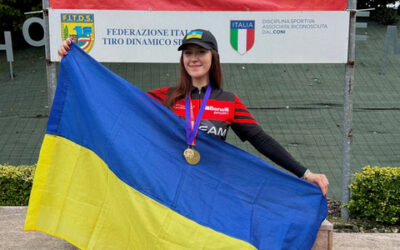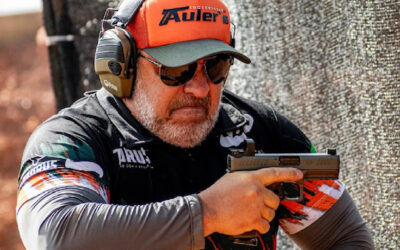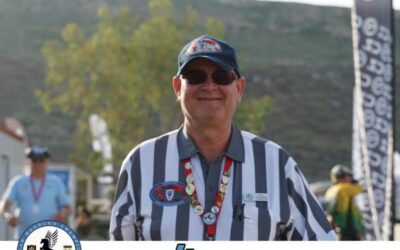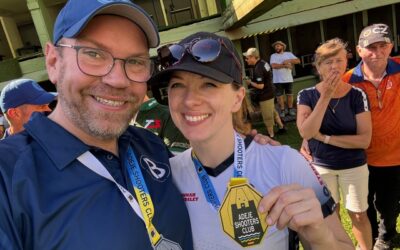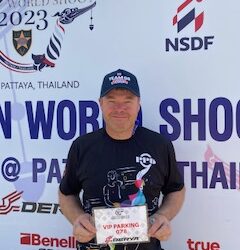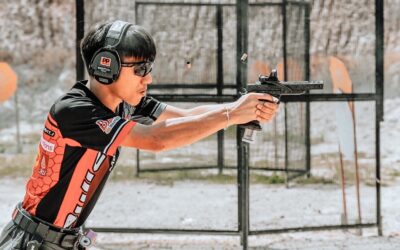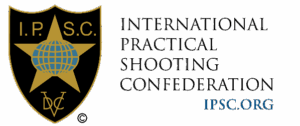
Kim Leppänen
Region: Finland
Q: How many years have you been shooting?
I started shooting at a young age and quickly discovered my passion for the sport. My father has been involved in IPSC shooting since the 1980s, so I grew up immersed in the culture. At 15, I began clay target shooting with a shotgun. After completing my military service, I started competing in IPSC in 2010.
Q: What do you like best about IPSC shooting?
It’s not just about raw skill or chasing perfect scores—it’s about the holistic challenge. The sport tests your intelligence, speed, physical ability, and technical skill, with the balance between these elements shifting from match to match. What fascinates me is the opportunity to grow in all these areas, rather than focusing solely on pure accuracy or physical performance.

Q: How often do you practice at the range?
This question can be misleading because IPSC training isn’t just about rounds fired. Progress often comes from methods beyond pulling the trigger. The brain doesn’t distinguish between live-fire sessions, focused dry-fire drills, or mental training—when done properly, all contribute equally to skill development.
That said, I’m lucky to have a private indoor range. During certain seasons, like now, I’m there daily. But I’ve also gone six months without live-fire practice. What never changes is my daily training routine: physical conditioning, mental work, and technical drills. Some periods include daily live-fire, others prioritize different aspects.
Q: Who do you consider your inspiration or mentor?
One of my biggest inspirations is Jerry Miculek. But my shotgun career—which put me on the world map—is largely thanks to Mika Riste. Most recently, since 2018, I’ve been mentored by Jari Roponen. All of these individuals have played a huge role in helping me move forward in my journey.
Q: Are you active in any other sport?
I enjoy training my physical fitness in a versatile way. One specific sport I’ve practiced for over 15 years is judo, and I still train regularly—often together with my own children. Beyond that, I enjoy all kinds of sports and like trying out different disciplines both for fun and personal development.
Q: What advice do you have for up and coming shooters?
The most important thing is to trust yourself and have the courage to step into competitions. At matches, you get to see what others are doing and learn much more about yourself than you ever could in training alone. And when you notice areas for improvement during competition, it gives a clear direction for your next training sessions.

The most important thing is to trust yourself and have the courage to step into competitions

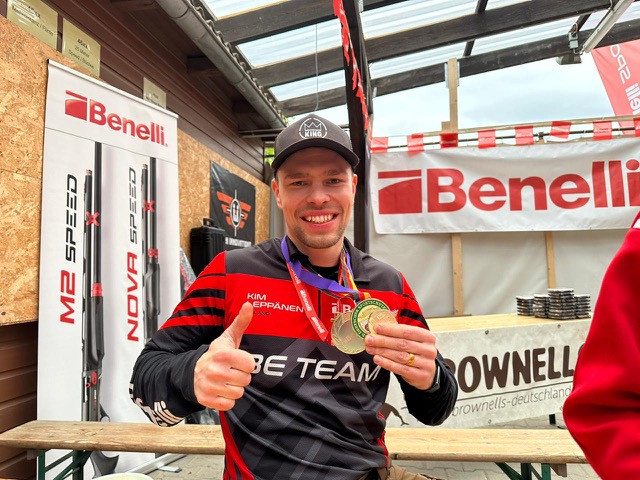
Related Articles
Leading Ladies: Oleksandra Iliukhina
Oleksandra IliukhinaRegion: UkraineHow long have you been shooting?I’ve been competitively shooting for 9 years. I took my first shots at 14, and...
Senior Shootizens: Eurico Auler
Eurico AulerRegion: Brazil | Age: 62Q: When and where did you first discover IPSC shooting?I’ve been doing target shooting since 1987. In 1989, a...
Cees van Diepen
Cees van Diepen Region: The NetherlandsQ: How many years have you been officiating?I started IPSC in 1998 by taking the safety course because I was...
Hannah Mawdsley and Tom Ellaway
Hannah Mawdsley and Tom EllawayIPSC Joining HeartsHow and when did you meet?H: We met in September 2023. Tom came to my local club for a competition...
Meet Your Regional Director: Kevin Strowger
Kevin Strowger Region: Great Britain Regional Director Since: 2013How long have you been involved in IPSC shooting?I first joined the UKPSA in 1993,...
Young Guns: Veeravit Jarukiatpongsa
Veeravit Jarukiatpongsa Region: Thailand Age: 20How did you first hear about IPSC?I heard about IPSC shooting when I was 6 years old since my dad...

